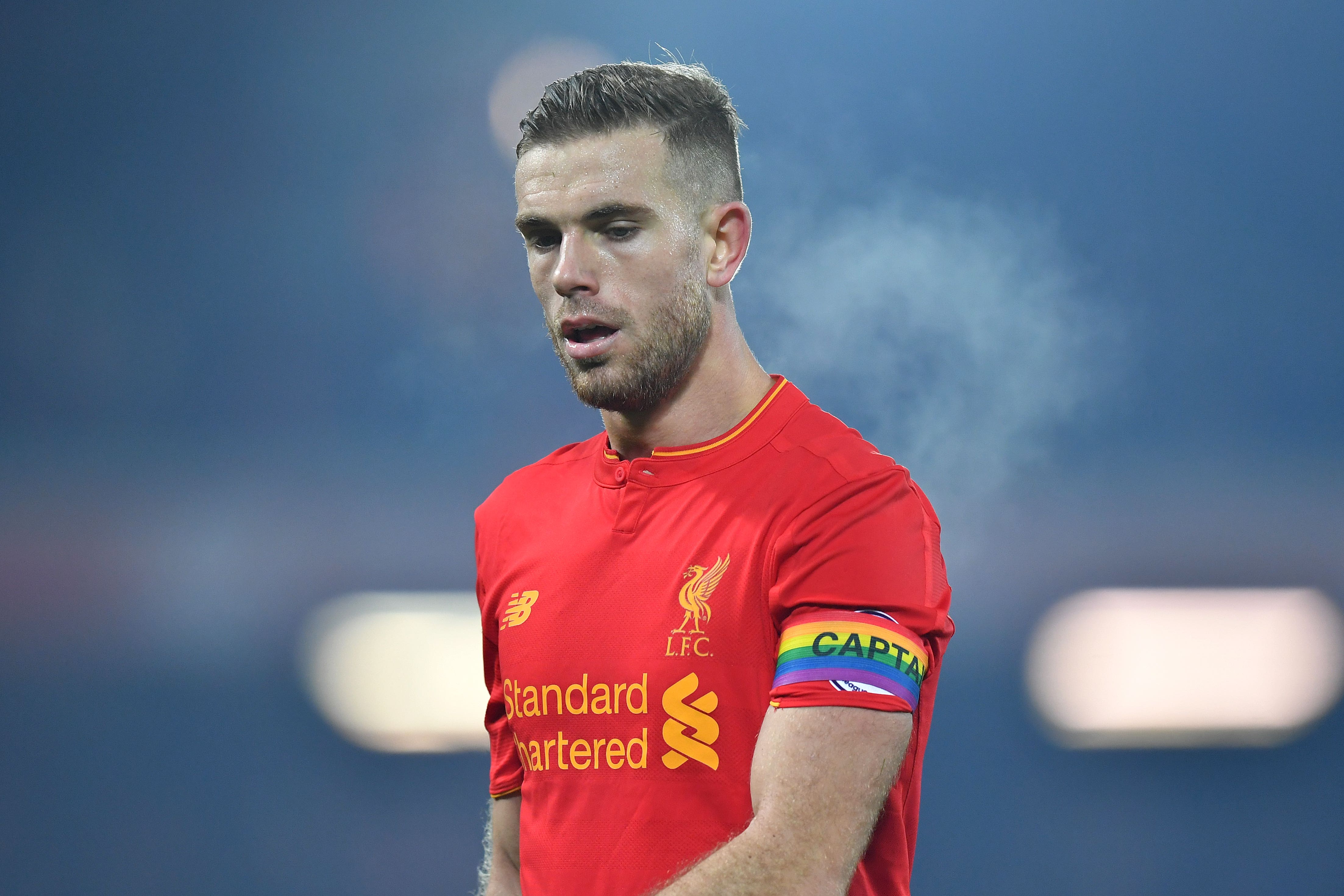Restoring trust in Jordan Henderson ‘will take some time’ for LGBTQ+ community
Henderson, a high-profile supporter of LGBTQ+ rights in his time at Liverpool, was booed off the pitch at Wembley during a friendly in October.

England midfielder Jordan Henderson should expect “some tough times” from the LGBTQ+ community when he returns from Saudi Arabia, according to a European supporters’ equality campaign group.
Former Liverpool captain Henderson signed for Saudi Pro League side Al-Ettifaq in a lucrative but controversial move last summer.
The 33-year-old has now returned to Europe after reaching an agreement with Al-Ettifaq to terminate his contract and sign for Dutch giants Ajax until June 2026.
Henderson was a high-profile supporter of LGBTQ+ rights during his time at Anfield, and subsequently apologised for any hurt he caused by moving to a country where homosexuality is illegal.
He was, though, booed off the pitch at Wembley during an England friendly against Australia in October.
Sven Kistner, board member of Queer Football Fan Clubs, a network of European gay and lesbian football fan clubs which has around 1,200 members, feels Henderson is likely to face some similar reactions when he is expected to make a return to action in the Netherlands.
“I think he will go through some tough times still with the LGBT+ community,” Kistner told the PA news agency.
“He was kind of an icon, a role model to many of the community, but then he decided to leave for Saudi Arabia – it is not the US or Japan, or even China. It is Saudi Arabia.
Now that he was there, he noticed quite soon that it is not the best place to be
“I think that was not very well received by the community, which is absolutely understandable. Now that he was there, he noticed quite soon that it is not the best place to be.
“Also from a football point of view, because if in 80 per cent of the cases you play with a stadium which is only two per cent occupied, it’s not really fun for a player as well.”
Despite the disappointment over Henderson’s move to Saudi Arabia, Kistner feels the player can go on to restore his reputation within the LGBTQ+ community.
“He could and should have known better before, but he didn’t and now he’s coming back,” Kistner said.
“I think he might again play a good role for our community, but it will take some time until the trust in him is back. It will need some effort from his side to get this reputation back.”
Henderson’s move to Al-Ettifaq also drew criticism from human rights campaigners Amnesty International, which said it fell “squarely within Saudi Arabia’s mega-money sports-washing project”.
Saudi Arabia is the sole bidder for the 2034 World Cup, with host status expected to be rubber-stamped at FIFA’s Congress later in the year.
ILGA World is a global federation of more than 1,900 organisations from over 160 countries and territories campaigning for lesbian, gay, bisexual, trans and intersex human rights.
Gurchaten Sandhu, director of programmes at ILGA World, feels such decisions by international sporting federations to hold showpiece events in countries under the spotlight for human rights sends the wrong message.
“We know that Saudi are the only bidder for the 2034 World Cup, and we already have gross human rights concerns,” he told PA.
“That includes labour rights, trade unions rights, women’s rights concerns, LGBTI concerns as well as an egregious lack of compliance against international human rights standards.”
ILGA World work alongside the Sport & Rights Alliance global coalition and are a member of the Centre for Sports and Human Rights in Switzerland.
It is important for allies and those who are working with our communities to make sure that they are raising their voices.
Sandhu feels continued dialogue is critical in the on-going movement towards equality.
“It is important for allies and those who are working with our communities to make sure that they are raising their voices and advocating for the rights of everyone and equality for all,” he said.
“Our job is integral here to make that dialogue happen, because if we are not talking to one another (then) we are hurting one another and our communities get hurt – and as a consequence, other we are not advancing on achieving equality for all.”
Bookmark popover
Removed from bookmarks